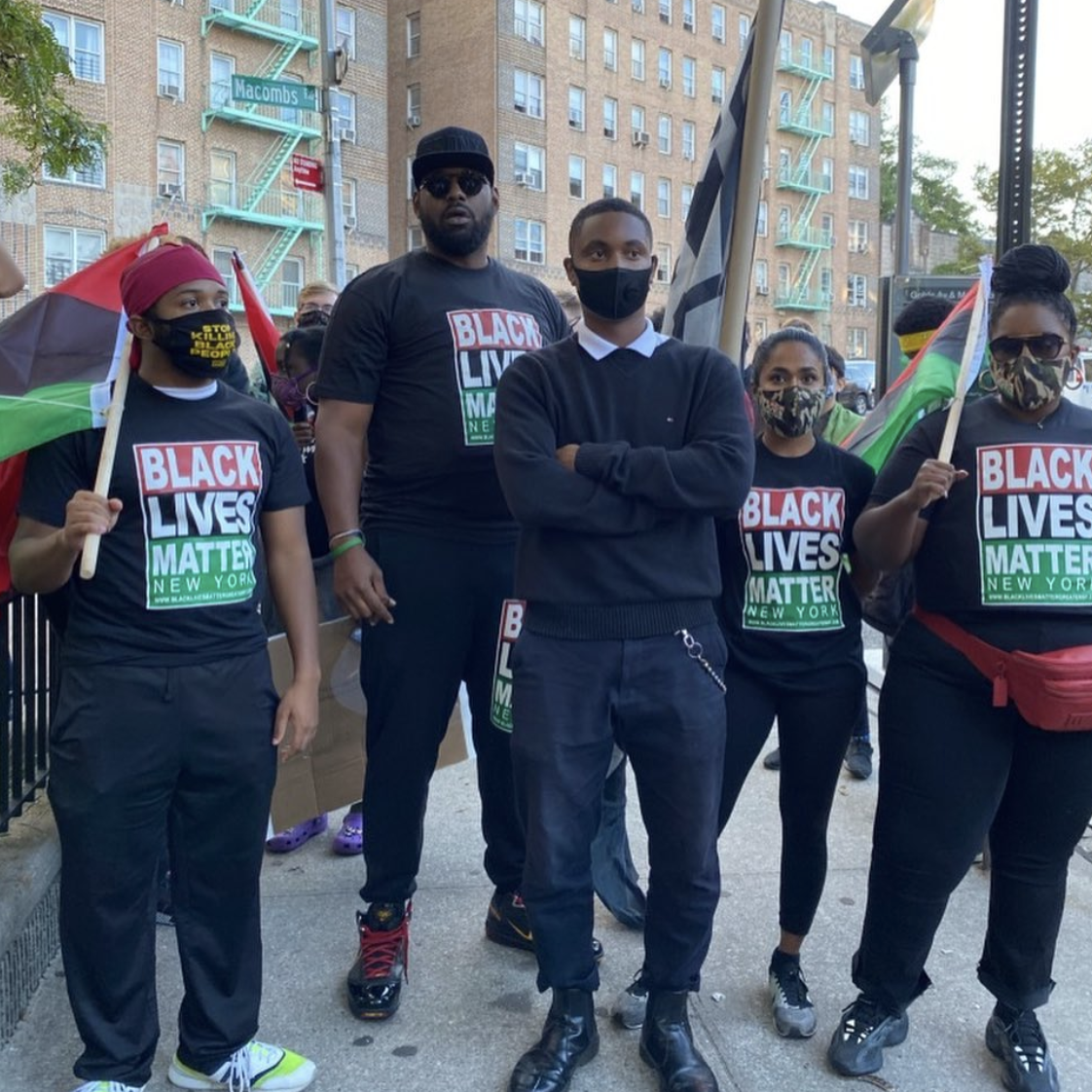Political Activist, Chi Ossé Is Committed To Making A Difference In Brooklyn, NY
Chi Ossé, a candidate for New York City Council in District 36 and a third-generation Brooklynite, is committed to restoring justice; supporting families and seniors; investing in education, housing, and healthcare; and reimagining public safety so that the system ceases to criminalize African Americans.
Chi Ossé
Tell us about your background and how you got into politics?
On May 28th, just days after George Floyds death, I felt very moved to go out and protest in NYC. I grew up with the generation that saw Trayvon Martin get killed, and his killer walked away free. A lot of millennials and Gen Zers were so young, and we felt hopeless because we couldn’t go out to protest. Our parents were afraid and still are. That was in 2012, and since then countless other Blacks, trans, and people of color have died because of institutionalized racism. This year, I felt enough was enough! I wanted to represent my community and find my voice. While I was out there protesting, I realized people were listening, and shared the same frustrations I did.
I knew peaceful protesting was not the only answer, so I did the research and found out the City Councilman seat was open and decided to run for office. Prior to politics, I worked in Fashion and NYC nightlife.
You’re running for office in BK district 36. Is this where you grew up?
Yes, I am a third-generation Brooklynite. As a Brooklyn native and North Crown Heights resident, I have plans to enact real change to help this district and our City, both now and after the election.
I am running for public office because our current elected officials are not completing the work that needs to be done for the people — all the people — of NYC.
Chi Ossé
Do you think growing up in New York had an effect on the way you see the world around you?We’re not even up to code in our cities. Talking on a political level, we’re not putting progressives in leadership roles. That’s why we’re trying to have a dynamic shift with this primary in New York City next year. We may be a diverse city and have diverse thinkers in terms of progressive ideas, but when it comes to voting in local elections we don’t live up to the progressive code that we should.
When did you begin to get involved in your work as an activist?
Besides phone banking and canvassing for Bernie Sanders’ 2016 and 2020 presidential campaigns, my political work truly began in 2020. Community organizations have been the answer to many of my community’s problems, thus my work to help our neighbors has been through them. Currently, I am working with CBOs & local leaders to combat food insecurity, violence (police and criminal), and housing. The work has gone beyond soapboxing but has put food into senior residences & NYCHA. Together, we have raised $11K for violent interrupters.
Voter in Crown Heights, Brooklyn, NY
Chi Ossé
When and how did you decide to make the switch from advocacy work to a political career?These days, I prefer the term public advocate because it represents both my work on the ground and in politics. Doing the groundwork gives me more information on the needs of my community. Even as a politician, I will continue to be on the ground advocating for those who are often unheard.
How did you connect with the other leaders of Warriors in The Garden?
During the BLM Spring, the members met organically. I co-founded the activist non-profit, Warriors in the Garden, whose mission is to protect our communities from all forms of systematic oppression. Through the organization, we have put together Black business expositions in the district and coat drives to keep our citizens warm.
Chi Ossé and team
Do you think the future of politics includes engaging with the community through social media, as Warriors In The Garden became a huge collective resource for the community?
I think we need to do the work from all angles. Social media advocacy alone cannot save us. Warriors in the Garden (WITG) used the resources we had during the pandemic to keep people safe and informed. With more people getting vaccinated, we have more opportunities to engage the community both virtually and in person.
It has become a well-known staple of yours to wear a black beret, much like the Black Panthers, How does fashion play a role in the work you do?
In April 2020, I won a T-shirt design contest hosted by something of a local legend, Instagram anthropologist @newyorknico, with a design referencing Chinese restaurant takeout menus. In terms of politics, I try to wear black designers to interviews, events, and photoshoots in order to amplify other creatives.
Chi Ossé
You are a leader in your community. Do you have any suggestions for others who may way to get involved in their communities?
Follow your intuition and try to find the issues that directly impact your community. Then I would do research on those problems and the community leaders who are currently working towards a solution. A quick Google search can really help.
We have seen you march in many clothes from black-owned brands. Do you think the future of activism and politics encapsulates aesthetic-conscious consumption?
Fashion has always been political for the Black community. During the civil rights movement, many of us wore suits, and in the 70s the Black Panther's wore what they called the power uniform to awaken racial consciousness in America. I believe now more than ever younger consumers want to put their dollars into companies that practice corporate responsibility. So yes.
Please tell us your socials and where we can find more information about your campaign.
@Osse2021 on all platforms
Article by Allison Dickerman, Contributor, PhotoBook Magazine
Tearsheets by Cubie Chang, Contributor, PhotoBook Magazine









